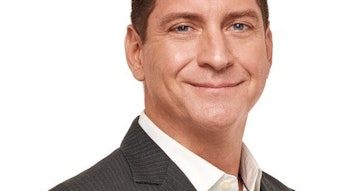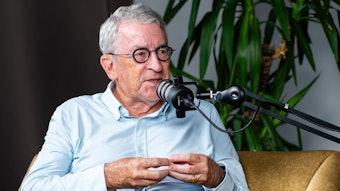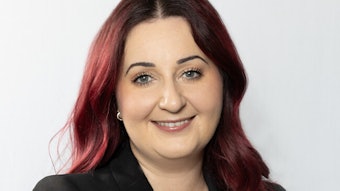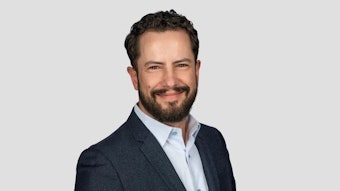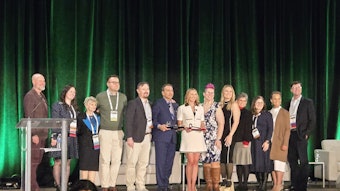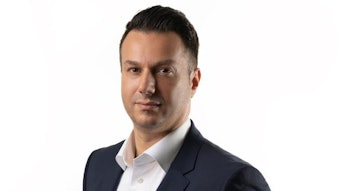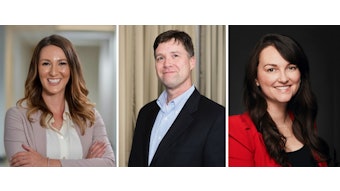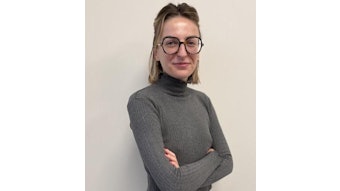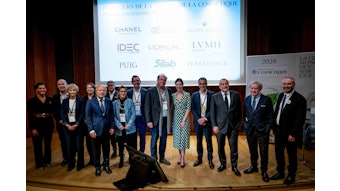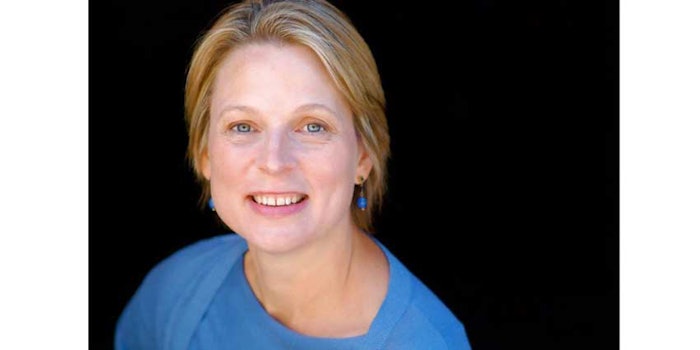
While Mary Lynn Halland, IFSCC Secretary General, is fairly new to her role, she has built up a year’s worth of experience in the cosmetics industry. Here, she shares insights about what she's learned thus far, and where the industry's headed. She also emphasizes how members who are part of an SCC chapter are automatically part of the IFSCC, and hopes to spread the word about this.
Cosmetics & Toiletries: What's the back-story to Mary Lynn Halland? Where are you from? What professional interests do you have?
Mary Lynn Halland: I’m originally from Michigan but having said that, I was actually born in Cleveland; I’m a definite Midwesterner. I graduated from the University of Michigan, where I studied economics. From there, I immediately drove out to New York City, where I’ve lived for many years.
I started my career in retail banking and marketing, and I spent almost my entire career in project management at large stock brokerage firms in their marketing departments. I enjoy that very much.
While I was doing that, I got my MBA from NYU in finance—but my first love was music. I actually studied clarinet extensively and more recently, I’ve studied voice.
C&T: What brought you to the cosmetics industry?
MLH: It was completely by chance. I was at another federation, a global federation of business organizations, and was looking to make a change. I just randomly saw a posting for an executive director working with the global scientific federation. Immediately, I said, "Oh that’s got to be it, the perfect fit for me."
I really enjoy administration jobs. I like organizing thing, improving processes and making things work efficiently. I’ve lived overseas twice, in Latin America and in France, so at least one point in my life, I spoke Spanish and French very well. So I was very interested in having a job with a global outlook. And if I can travel internationally, even better—and this job does require international travel. So I was excited about it when I saw the job posting and was thrilled to get the job.
I also was in Korea in early 2016 for the IFSCC spring meeting, and since the IFSCC Conference in 2017 is being held in Seoul, in the meantime I’m studying Korean.
C&T: How do you envision your role with the industry? What aspirations and expectations do you have?
MLH: The IFSCC is an umbrella organization for Societies of Cosmetic Scientists around the world. So I’m the administrator. When people ask me what I do, they look at me and they say, “Oh, you’re a scientist?” And I say, "absolutely not." I don’t do any bench research, I just act as administrator for the organization of people who do.
So my job, as I see it, is to run the organization efficiently and effectively. I take very seriously the fact that I’m spending other people’s money. So I try to be as efficient as possible to promote the IFSCC as this umbrella organization, which right now encompasses 48 national Societies of Cosmetic Chemists, and we hope to admit at least one more in the next year, maybe even two.
The number one thing I see for my role to accomplish is getting the word out that if you’re a member of your country’s Society of Cosmetic Chemists, you’re automatically—assuming that society is part of the IFSCC—a member of the IFSCC. So if you live in France and you’re a member of the French Society of Cosmetic Chemists, you’re automatically a member of the IFSCC. And anyone who is a member of the IFSCC can go online and access our quarterly magazine. We also offer access to KOSMET, which is the only global database of scientific papers on cosmetic science.
C&T: You've had several months to “dip your toes" into the industry. What observations can you make about it?
MLH: Two things. Number one is, I was very surprised how passionate people are about their work. Scientists will tell me, “I know it’s only makeup, but it really makes a difference in peoples’ lives." I was once in a disaster zone after a big natural disaster, and we brought makeup to people. We thought this was so ridiculous and out of touch with their needs, but you could not imagine how much happiness just this little semblance of a regular routine and regular life brought to people.
So even though people may dismiss makeup thinking it’s trivial, it really does make a big difference to some people in certain circumstances, or in everyday circumstances. And the passion people bring to their day-to-day research and day-to-day involvement in this industry really surprised me.
The other thing that surprised me, again, is that people don’t know they already belong to the IFSCC. I bet if you ask any of our societies to ask their members, less than half of them would know they are already IFSCC members.
C&T: What else has surprised you about the industry and why?
MLH: Another thing that really surprised me about the industry, once I started understanding it better, was how many different players are involved. As a consumer, you walk into a store or department store and there are things on the shelf or at the counter that you don’t really think about how they got there.
Working inside the industry a bit now, I’ve learned about the formulators, the regulatory people, the raw material suppliers, the finished good companies, the packaging suppliers, the list just goes on and on—how many different organizations, companies and types of people are involved, and I found that very surprising. And how large and growing the industry is—how many people in the U.S. and globally are involved in this really surprised me.
C&T: In what direction do you see the industry moving?
MLH: I’m very new to the industry but I will tell you as a regular person with a marketing background, I’ve been very surprised in reading press reports about how much the halal market is rising in importance. I just find that fascinating.
Also, there seems to be a real clammer for natural products. Everyone wants “natural” written all over their products and they’re willing to pay more for it, it seems. And certainly the younger generation is very concerned about natural, but I don’t think people really know what that means.
You can’t just make the blanket statement, “If it’s natural it’s good, and if it’s not natural it’s bad.” I think we, as an industry, need to do some more general education around that.
C&T: You just experienced your first IFSCC Congress in this role. How did it go? Did it meet your expectations? What, if anything, would you have changed?
MLH: I really enjoyed myself down in Florida. By far, the thing I enjoyed most was meeting the people I’ve been emailing for a year. I met people from South Africa, Brazil, Korea, Mexico, China, etc., all over the world and I took pictures with a lot of people. I found it very fulfilling just to complete the circle like that.
I wish there were two of me because I was sitting in the exhibit hall manning our booth, telling people about our 2017 Conference in Seoul and the 2018 Congress in Munich, so I wasn’t able to attend any of the scientific parts of the program. I wish I could have done that. I thought it was well-organized and I really enjoyed the events at night.
The biggest surprise was how excited I was for the awards ceremony. I just couldn’t believe the excitement I felt as they were opening the envelope and I wondered who was going to win and how they would react.
We don’t talk much at the ceremony, and we don't announce how much the monetary awards are but the best applied and the best basic researchers each win 7,500 Swiss francs (roughly $7,500). The best poster winner gets 2,000 Swiss francs, (roughly $2,000). I thought those were significant prizes, but I was told the money is really secondary; it’s all about the respect and acknowledgment from your peers that your work really stood out. The winners were clearly very surprised and happy, so I think that was the highlight for me.
C&T: Do you have any other insights or comments you'd like to share?
MLH: One thing I’ve heard from a couple people at the New York Suppliers' Day and our Congress is, “The reason I like this industry so much is the people that work in it are so nice.” I’ve heard that from a lot of people, and it’s really true. When you first hear it from one or two people, you think they [might be exaggerating]. But you start hearing it from more and more people, and you work in the industry for a while, and I have to say—they’re right. I just really like the people I work with and the people I get to interact with at the Congresses.
Sitting here in the Society of Cosmetic Chemists’ office, which also hosts the offices of the IFSCC, I get to meet people coming and going, and I really enjoy the people I work with and meet. That’s been a nice surprise as well. It’s nice to work in an industry you enjoy and with people you enjoy.
